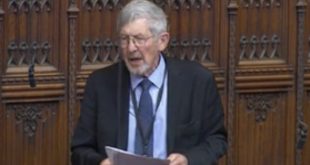
The Gambling Review’s White Paper has proposed broadening the scope of duties and requirements for those holding a Personal Management Licence (PML).
Chris Biggs, Gaming Associate of Harris Hagan, provides his legal eye on the changes needed by PMLs to meet the White Paper’s new accountability standards and rationale for stricter management of licensed incumbents.
Individuals who hold a personal management licence (“PML”) issued by the Gambling Commission undoubtedly play the most important role in ensuring business decisions are underpinned by the licensing objectives, building a strong foundation of compliance and raising standards. Ultimately, they are personally accountable and responsible for compliance failings. As personal licensees, PMLs can face enforcement action by the Gambling Commission. We expect to see more enforcement action taken against PMLs on the basis that people make decisions, not businesses.
The White Paper included a proposal to extend the requirement to hold a PML, set out in licence condition 1.2.1 of the Licence conditions and codes of practice (“LCCP”), with the goal to drive “personal accountability and responsibility”, allowing the Gambling Commission to “take necessary action against individual (personal) licensees when failures are found”. In our previous blog, we discussed who (currently) needs to hold a PML, how PMLs drive corporate culture, the Gambling Commission’s proposed changes to PML requirements following the White Paper and the reasons for those potential changes.
With the spotlight on PMLs, in this blog we provide an overview of PML requirements and our top pointers for staying compliant.
PML requirements
One of the key challenges for PMLs is that, unlike many other regulated professions, there are no standards of: (a) conduct, performance and ethics; or (b) competence, which set out the minimum requirements. Instead, the PML regime is based on broad principles as detailed below. It is worth noting that if the Gambling Commission commences a licence review against a PML, it will be based on the PML’s failure to comply with the following licence conditions and/or expectations:
Licence conditions
There are three licence conditions attached to PMLs, set out in Part 3 of the LCCP, summarised as follows:
- Licence condition 1: PMLs “must take all reasonable steps” when carrying out their responsibilities in relation to licensed activities to ensure they do not place their employer’s operating or premises licence in breach of their licence conditions. This is evidently broadly drafted and widely interpreted by the Gambling Commission.
- Licence condition 2: PMLs must keep themselves informed of “developments in gambling legislation, codes of practice and any Commission guidance … relevant to their role”.
- Licence condition 3: PMLs must report key events (see below) within 10 working days of becoming aware of the event’s occurrence.
“Expectations”
Additionally, section 4.3 of the Gambling Commission’s Statement of principles for licensing and regulation sets out the expectations of individuals occupying senior positions, whether or not they hold PMLs, to (amongst other things):
- uphold the licensing objectives and ensure compliance of operations with the LCCP;
- organise and control their affairs responsibly and effectively;
- have adequate systems and controls to keep gambling fair and safe;
- conduct their business with integrity;
- act with due care, skill and diligence;
- manage conflicts of interest fairly;
- work with the Gambling Commission in an open and cooperative way;
- disclose to the Gambling Commission anything which it would reasonably expect to know; and
- comply with both the letter and spirit of their licence, the licence of their operator and associated Gambling Commission regulations.
PML key events
As set out in licence condition 3, PMLs are required to notify the Gambling Commission of the occurrence of certain key events, “within 10 working days after the licensee becomes aware of the event’s occurrence”. These are:
- a change in name (for example, following marriage);
- a change in address;
- any current or pending investigation by a professional, statutory, regulatory or government body in Great Britain or abroad, and the imposition of any sanction or penalty against them following such an investigation (this would include another gambling regulator);
- being subject to (a) any criminal investigation, or (b) conviction of any offence, listed under Schedule 7 – Relevant Offences of the Gambling Act 2005;
- the imposition of a disciplinary sanction against them, including dismissal, for gross misconduct;
- resignation from a position for which a PML is required following commencement of disciplinary proceedings in respect of gross misconduct;
- disqualification from acting as a company director; and
- the presentation of a petition for their bankruptcy or sequestration or their entering into an individual voluntary agreement.
Further guidance to PMLs about personal key events can be found here.
Online service and contact details
PMLs must ensure their registered contact details are accurate. In addition to this being a licence condition, it will ensure critical correspondence is not missed, including relating to any revocation (generally, for failure to undergo PML maintenance) or licence review.
When granted, we strongly encourage PMLs to register for the Gambling Commission’s Manage your personal licence online service for PMLs. This service allows PMLs to update contact details, submit key events and submit maintenance checks (see below).
PMLs:
- must – personally – keep their registered email address up to date; and
- should ensure the Gambling Commission’s email domain is trusted, to avoid emails going to junk or spam folders.
PML maintenance
PMLs are indefinite in duration, meaning that the licence does not renew or lapse.
PMLs are subject to a mandatory maintenance check every five years. This is an automatic process (not an application, as the Gambling Commission incorrectly describes it), the purpose of which is solely the provision of updated information about the PML, such as current address and position, and payment of the fee. It is for the Gambling Commission simply to check and record the information. As we have written previously, the Gambling Commission is not legally empowered to delay or put on hold PML maintenance on the misconceived ground that enforcement action is ongoing or imminent.
The Gambling Commission will contact PMLs by email to advise of the upcoming PML maintenance. We recommend that PMLs and any supporting compliance/licensing teams separately diarise the five-year anniversary. A failure to submit the PML maintenance check will result in the PML being revoked.
To complete the check, PMLs need to sign into the online service. PMLs cannot submit the maintenance check before the PML anniversary date, and have only 30 days from the anniversary date to submit the check. Upon submission, a fee of £370 needs to be paid.
At the time of writing, if a check is not submitted within 30 days, the Gambling Commission will send a notice of revocation by email, providing a further 28 days from this notice to complete the maintenance check, otherwise the PML will be revoked.
Tips for PMLs
- Keep contact details up to date;
- Ensure the “gamblingcommission.gov.uk” email domain is whitelisted;
- Register for the online service;
- Understand the meaning of a key event, including changes of name or address and criminal investigations (without charges);
- Understand the PML licence conditions and expectations;
- Document structured and unstructured training; and
- Diarise the five-year maintenance check.
Tips for employers
- Remind PMLs to provide personal contact details (i.e. not a work email address) to the Gambling Commission upon or shortly before departure from the business;
- Provide or arrange for annual refresher training to be provided for PMLs on PML licence conditions and expectations (we can help with this!);
- Keep a record of internal and external training provided to PMLs;
- Diarise each PML’s five-year maintenance check for both the business and the PML;
- If a PML leaves or changes roles within the business and they held a specified management office, the business needs to notify the Gambling Commission as soon as reasonably practicable, and in any event within five working days of the PML’s departure under the operating licence condition 2.1(4); and
- Remind the PML to notify the Gambling Commission of their departure if they leave the business and update their contact details, if required.
___________________
Chris Biggs, Gaming Associate of Harris Hagan










